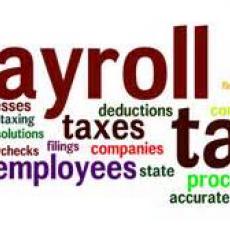In every employment lawsuit where a judgment or settlement is paid the issue arises whether the employer is mandated to withhold a portion of the payment for payroll taxes. The more that is paid out, the more the parties fight about the issue. On the one hand, the former employee does not want to see his/her money paid to the government. If the employer insists on withholding funds for payroll taxes, the employee demands a higher settlement. On the other hand, the employer does not want to pay a matching portion for some payroll taxes. Nor does it want to increase the payment to the former worker.
In a somewhat different setting, the Labor Commissioner won’t allow the employer to withhold any amount from a settlement for payroll taxes, even though the only claim before the Commissioner is for unpaid wages.
In 1992, a California appellate court held that an employer is not required to withhold payroll taxes from an award of lost wages to a former employer. (Lisec v. United Airlines, Inc. (1992) 10 Cal.App.4th 1500.)
Fast-forward more than two decades to the case of Cifuentes v. Costco Wholesale Corp. Mr. Cifuentes filed a lawsuit against Costco alleging, in part, breach of the employment contract. On that one claim Mr. Cifuentes prevailed and was awarded $28,125 in past wage loss and $273,253 in future wage loss. Costco paid the judgment but withheld $116,150.84 in payroll taxes. Mr. Cifuentes was upset and demanded to be paid what was withheld. Although his anger was lessened with a $69,078 tax refund, Mr. Cifuentes demanded that Costco pay him $23,764.95. Costco refused.
The issue for the court was whether an employer is required to withhold payroll taxes when paying a judgment to a former employee for lost past and future damages. Rejecting Lisec, the court responded yes, the employer has such an obligation.
The Internal Revenue Code requires employers to withhold payroll taxes on wages. A wage is any remuneration for services performed by an employee for his/her employer. With very few exceptions, every federal court since Lisec has determined that a payment for back or future lost wages constitutes a wage requiring payroll tax withholding.
The court wrote that Costco “chose correctly” in making the withholding. Otherwise, it would have incurred liability for the amount of taxes not withheld, penalties and interest.
The Cifuentes case is unlike many employment lawsuits. Mr. Cifuentes won only on his claim of breach of employment contract. Therefore, every nickel of the judgment constituted lost wages.
In many cases, an employee alleges discrimination. A judgment, or settlement, in a discrimination case can include lost wages and non-economic damages such as emotional distress. In these cases, the parties attempt to negotiate what part of the settlement of a lawsuit constitutes lost wages and what constitutes non-economic damages. Both parties are interested in minimizing the tax impact of a settlement and therefore attempt to allocate a lower amount to lost wages.
Regardless of what is allocated, under this case it appears that an employer is mandated to withhold payroll taxes from any settlement that includes lost wages. This will make settlements more expensive. Plaintiffs will demand higher settlements to compensate for the payroll tax withholding.
It will also be very interesting to see how the Labor Commissioner will respond to this case. If a California court has concluded that an employer must withhold payroll taxes on any payment for lost wages, and since the Labor Commissioner deals only with wages, and not non-economic damages, it seems that any payment, whether in the form of a settlement or payment after the issuance of an Order, Decision or Award, must be subject to payroll taxes.
Stay tuned!

